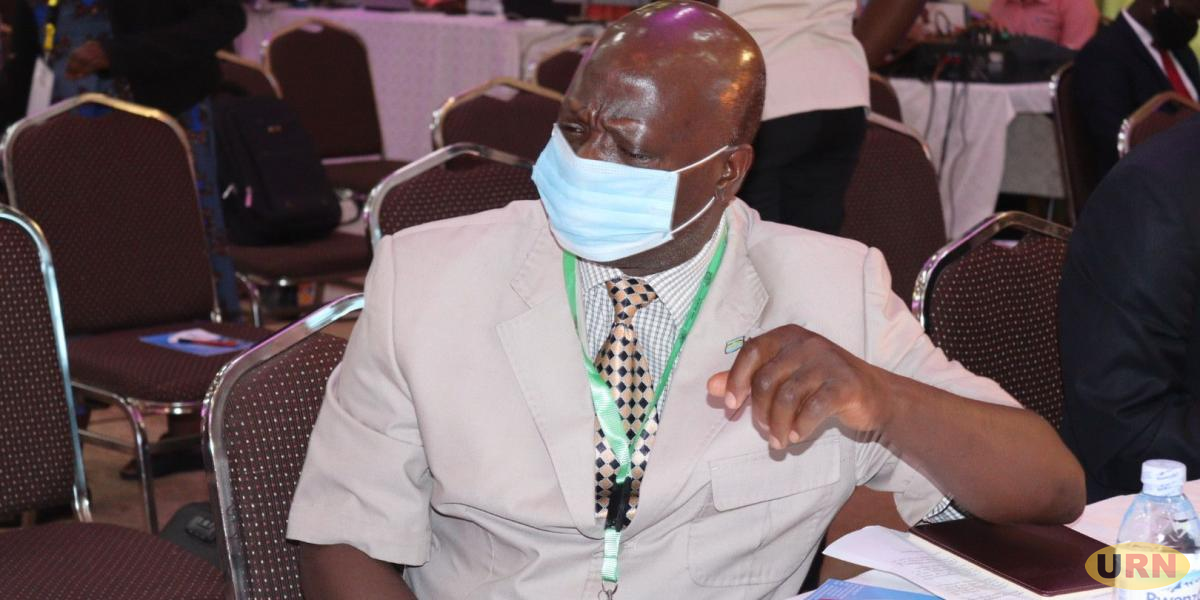Laban Kato
Laban Kato,29, will be part of thousands of students who are due to graduate at the 73rd graduation ceremony of Makerere University in February.
On Wednesday, he broke the internet by sharing a little portion of his remarkable journey which he described as an achievement not only for his family but also for the sub-county where he comes from. According to Kato, this will be the first Makerere University Degree from the family of 10 children, his clan and his village.
Born on November 2, 1993, Kato is the third of 10 children born to Johnson and Keren Nuwagaba, in Kitezo Kya Mbarara village, Kikakati sub-county, Insingiro District. He never took pre-primary classes but started school straight in primary one at Kitezo Primary school where he studied up to primary six in 2005.
He was, however, forced to drop out of school in primary six when his father who was the family’s sole provider was forced to flee their home after failing to pay a loan of 500,000 Shillings that he had acquired from a microfinance centre.
As a result, their house was seized because the father had used it as security for the loan. To Kato, this was the life-changing moment that saw him start suffering at an early age. First, he went to Kabale to live with one of his relatives, and look after his farm for a year before escaping to Kampala to live with his aunt on the advice of his mother.
His aunt started for him a small business selling airtime around the industrial area, a job he did for three years. He was earning at least 30,000 Shillings per month, a portion of which he used to provide for his mother and siblings in the village.
However, in 2009, while moving close to the old taxi park in Kampala, he suddenly met his father, who had vanished in 2005. Kato says that after their lengthy conversation, he asked his father to take him back to school.
The father took him back to school and he enrolled at Red Stars Primary School where he first failed the Primary seven interviews but explains that he was later allowed to continue in primary seven, and scored 17 aggregates. He narrates that he struggled with the English language and associating with people having dropped out of school for five years.
Upon finishing primary seven, he recounts his father telling him that he had no funds to join a secondary school and rather opted to send him to Kisekka market in Kampala to become a mechanic. But, while there, he came across a gentleman who learnt about his desire to go back to school and, after listening to Kato’s story from a store assistant in Kasubi village, the man only identified as Fredrick offered to take Kato back to school on the condition that he washes his car every weekend.
Although he fancied joining Mengo Secondary School, Kato recounts that his good Samaritan pushed him to enrol in Kampala High School, which was less expensive, and paid his fees of 50,000 shillings per term, until senior three, when he died in a motor accident.
At the crossroads, an old friend connected him to a food vendor at Equatorial Mall in Kampala, where he was hired for just three days; Friday, Saturday, and Sunday because he had to juggle school with work. He was earning 8,000 Shillings a day.
Kato got 32 points at the Ordinary level and proceeded to the Advanced level where he offered Physics, Economics, and Mathematics (PEM). In the end, he scored 8 points, with only one principal pass, forcing him to repeat senior six, in order to attain the two principal passes that he needed to join University.
His rebound at Church of God High School-Kasubi Nabulagala gave him 12 points and two principal passes from Math, Economics and Entrepreneurship (MEE), a score which gave him assurance that he would join University and pursue his dreams.
Kato enrolled at Makerere University where he was offered a four-year Bachelor of Commerce (External) Degree. He paid his tuition until the second year when the business that supported him collapsed.
But he immediately earned a scholarship from the Tertiary Education Scholarship Trust (TEST) for Africa, which provides scholarships to enable gifted students who would otherwise miss out on university education to obtain a degree. They paid tuition until 2022 when he completed his four-year course and is awaiting graduating with a 3.6 Cumulative Grade Point Average (CGPA), a second-class upper degree.
At Makerere, he was active in student politics and was a Guild Representative for the School of Distance and Lifelong Learning as well as a Guild security minister, all of which he says shaped his political career which he intends to push further.
He told our reporter that what excites him most is that he was able to juggle leadership with academics and completed his degree.
His long-term friend Isaiah Mpiirwomugisha who has equally participated in student politics told our reporter that Kato’s graduation comes as a morale booster to so many students.
-URN





